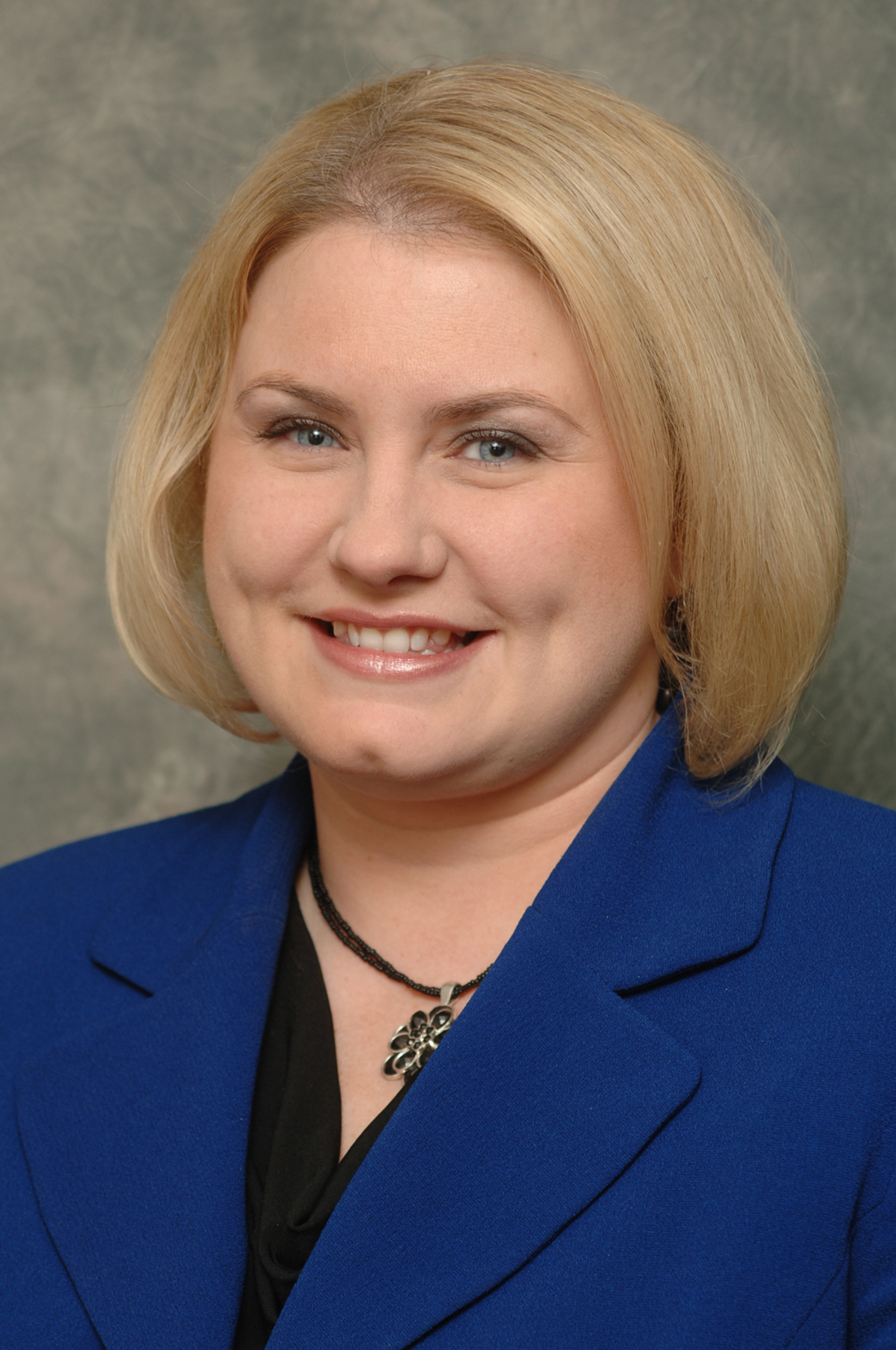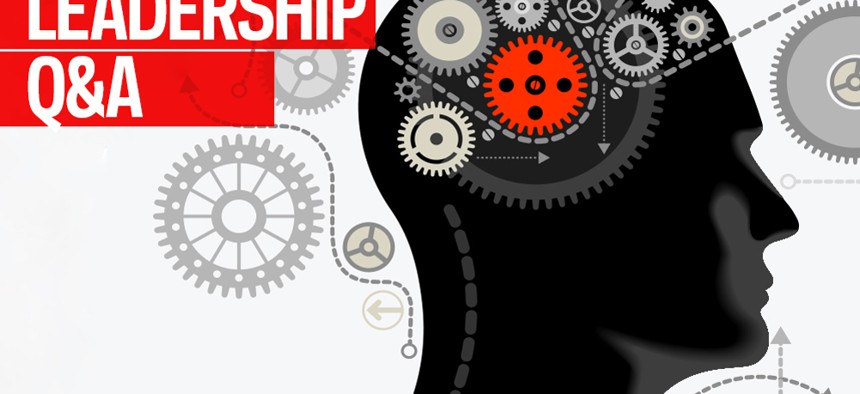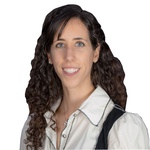How I Lead: Listen, Breathe and Then Ask Questions
Insights from Melanie Keller, associate director for management at FDA’s Center for Drug Evaluation and Research.
Melanie Keller is associate director for management at the Center for Drug Evaluation and Research, the largest center at the Food and Drug Administration. As the executive officer, she oversees administrative operations and a $1 billion annual budget. She also directs the human capital management of more than 4,500 employees and is leading recruitment strategies for nearly 800 vacancies at the center.
How did you get to where you are today?
I moved up the career ladder quite rapidly because of focus and determination. I started as a GS-5 secretary and am now in the Senior Executive Service. That didn’t happen by just putting in my time. Education and experience were essential. For 12 years I went to school part time and worked full time for the government to obtain my undergraduate degree and later my master’s in business administration. I kept a continual focus on my education. I also took opportunities that others didn’t want to in order to gain new and differing experiences. I volunteered to take minutes for an Intramural advisory board when I worked at the National Institutes of Health’s National Cancer Institute. Many of my co-workers considered the task to be beneath them, but I enjoyed learning new things and got to meet some world experts on cancer.
What leadership lessons do you try to convey to your team?
I have many leadership philosophies, which my staff has termed “Melanie-isms.” I find myself repeating them during meetings or interactions. It’s funny how quickly they catch on, and now I hear my staff sharing them. One is “resolve issues at the lowest level.” So often, people come to me with issues, and nearly 10 times out of 10 it is one of my staff that can really solve their problem. I empower my staff to work directly with their customers, and I quickly connect customers to the right people within my organization so they can receive faster resolutions. Another philosophy is “when everyone is in charge, no one is in charge.” So often, unless a clear leader is appointed and they know they are the lead, projects and tasks can languish. When we have so many things to do, often with limited resources, we cannot afford to waste time with unclear roles.
What do you look for in potential employees when making hiring decisions?

I look for many things, but one of the most important things is that a candidate is achievement-oriented. An employee with this mentality will often have a drive that will yield a higher output and then hold their staff to higher standards so the team can be high-performing. I have led stagnated teams, and I have led high-performing teams. The government gets such a better investment with a high-performing team.
What do you do after work for fun or to relax?
I really enjoy music. To relax I love to sing in my church choir, and about two years ago I started taking piano lessons. All of my life I always wanted to learn to play the piano. Then, finally, I affirmed to myself to make time for what’s important. I decided that I could either learn to play the piano now or wait until my eyesight started to go and arthritis started to creep in. I love to play and try to play every day. My husband and I have a 14-year-old daughter, and an 11-year-old son, so we are often hanging out on the sideline of her soccer games or attending one of his Boy Scout events. Supporting my kids and being there for them brings me so much joy.
What is your weakness and how do you compensate for it?
Having been raised in the Midwest, I grew up believing that everyone was good at their core, and therefore I tend to be really nice. I have learned that being a successful executive in the federal government means that you have to employ different leadership skills. Being nice is definitely in the toolbox, but being firm, direct and unwavering are also in the same toolkit. Different situations call for different skills.
What is your strategy for interactions with your supervisor?
My strategy in dealing with my supervisor is to handle things for her, so she doesn’t have to worry about anything in my purview. I am an extension of her, and in all interactions I ensure that I am representing her and protecting the interests of the center and agency. I keep her informed of those issues that will come her way, and if I have a problem, I come with a solution or options for her.
What is the best leadership lesson you've learned?
The best leadership lesson that I have learned is that listening can be more important than talking. So often I see people in meetings formulating their thoughts or responses, and frequently cutting other people off or talking over them. I have found that I need to understand what someone is trying to convey and breathe for a minute, allow them to finish, and then ask clarifying questions. The more clarifying questions I have asked, the more information I have, and the more informed my own responses and decisions will be.
What career accomplishment are you most proud of and why?
I am very proud of attaining the Senior Executive Service at the age of 34. I worked so hard to navigate my career and continually learn new skills and leadership strategies. When I obtained my MBA, I was going to school and working full time, in addition to managing my family responsibilities. It was hard, and I was really tired most of the time. But completing my degree was so fulfilling, and attaining the SES was such a proud moment for me. Many people dismissed me or felt that I was too young to be in management positions. I didn’t let them impact my drive and ambition or dampen my spirits. It taught me that hard work and perseverance can help you achieve your goals.
How do you involve your employees to ensure everyone is on board with a new idea?
In my experience, talking to folks individually is really important. I am also very honest and direct. I have learned how each of my employees prefers to interact, and I modify my approach based on his or her needs. Sometimes, it is important to get everyone in a room and listen, just listen. On several occasions, I have modified my view or path forward based on feedback. It is important to be flexible, especially when you can be, and it doesn’t cost you anything.
What is your latest goal or ambition and how do you plan to go about achieving it?
My latest ambition is to help my best friend start a nonprofit foundation for pregnancy loss and infertility. Pregnancy loss is something that much of our society is uncomfortable with and often people do not know what to say to a grieving mother. The nonprofit will provide resources and education around pregnancy loss and infertility to start changing the paradigm to embrace mothers that lose babies or women who struggle with infertility. I plan to support my friend and provide her with advice, guidance and moral support to get the organization up and running.
What is the most important thing you have learned in your career?
The most important thing I have learned in my career is that it’s not the “what” it’s the “way.” When there is conflict or someone gets upset about something, it is so often not what they are saying, but rather their tone or how they came across. I have learned how to deliver messages in a manner that doesn’t threaten or come across as demanding or condescending.
What motivates you?
I am motivated my center’s mission, to promote and protect the health of Americans by ensuring that safe and effective drugs are on the market. Every day when I come into work, I know that what I am doing affects every American when they open their medicine cabinet. I am motivated by executives that I have the pleasure of working with at FDA. The dedication, the long hours and the commitment to improving public health are an everyday occurrence. I am very proud to work side-by-side with such talented and dedicated individuals; it makes me want to work harder.








